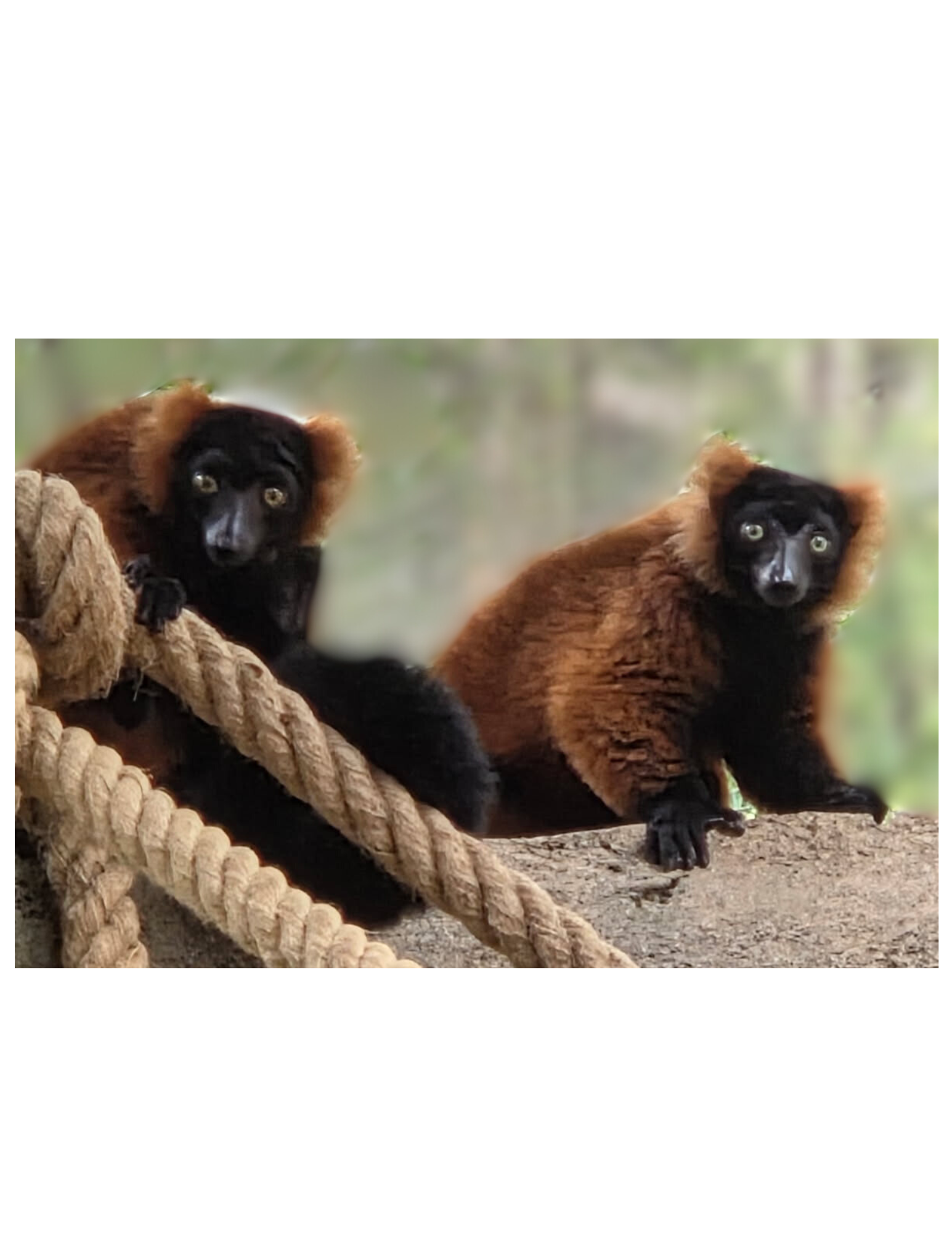
Hoffmann's Two-Toed Sloth


Eats
Sloths are folivores, meaning that they primarily eat leaves. Few animals can be folivores as leaves are very low in nutrients and often contain toxins. Sloths can maintain this diet by switching up the leaves they eat, being slow to conserve energy, and having microbes in their digestive tract to help them break down and detoxify leaves.
Lives
Hoffmann's two-toed sloth is native to tropical forests of Central and South America, including parts of Brazil, Bolivia, Colombia, Costa Rica, Ecuador, Honduras, Nicaragua, Panama, Peru, and Venezuela. Sloths are arboreal, meaning they spend time in trees. They spend nearly all of their time in areas of continuous canopy, and only come down around once per week to defecate (use the bathroom).
Behavior
Hoffmann's two-toed sloths are nocturnal, meaning they are most active at night. They are solitary, meaning they usually stay by themselves and typically only come together to mate, and use soft vocalizations or scent marking to communicate. They move slowly through the trees due to their low-nutrient diet and spend most of their waking hours eating or grooming their fur.
Description
Sloths hang upside down from trees, with long, curved claws for gripping tree branches. Two-toed sloths have two toes on their front paws and three on their hind paws, compared to three-toed sloths that have three on all four. Hoffmann's two-toed sloths have rounded faces with blunt hairless snouts and small eyes, and can be distinguished from Linnaeus's two-toed sloth by having darker markings on the shoulders and arms. Their fur is typically a mix of tan, blonde, and light brown, with darker fur on their backs, but can often be tinted green. Sloths move so slowly that algae grow in their fur, which not only helps them to blend in better, but can also be eaten!
Did you Know?
Sloths are great swimmers! They move faster in the water than on land, whether in a tree or on the ground.
How can I Help?
Hoffmann's two-toed sloth is rated by the IUCN as Least Concern due to the wide area that it lives in, which includes many protected forests. However, large parts of its rainforest habitat are being cleared or burned for timber and to create space for people to live and grow crops. The best ways that you can help the Hoffmann's two-toed sloth are to donate to organizations helping to preserve rainforests such as the Amazon and to reduce the demand for goods such as paper, coffee, and tropical fruits by buying local, reducing waste, and recycling.







_inPixio.png)
















.jpg)





.png)






